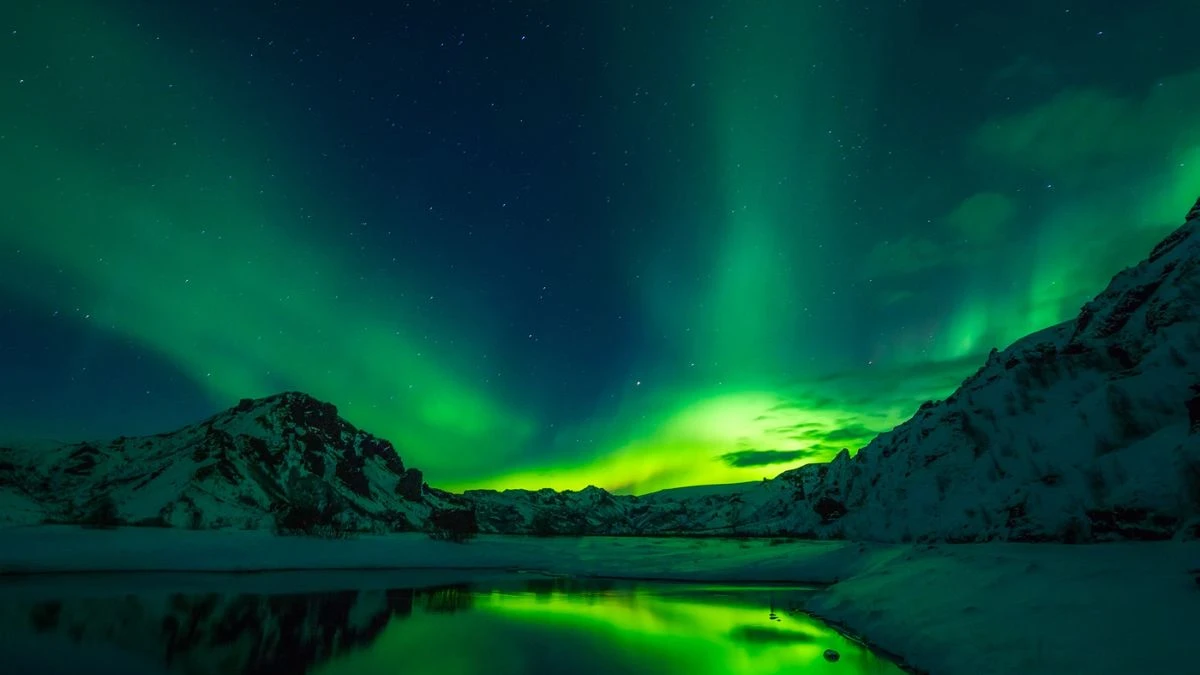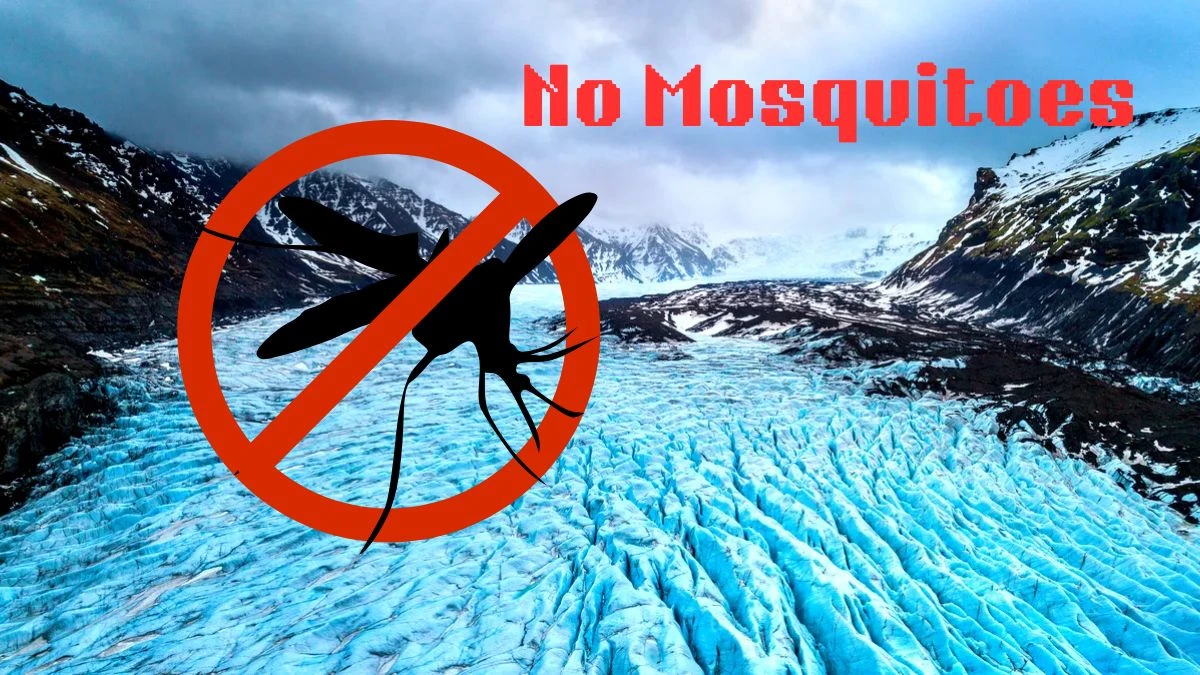The Land of Fire, Ice, and No Mosquitoes
Welcome to Iceland, the stunning Nordic island nation that has achieved what seems impossible: a mosquito-free existence.

While neighboring countries like Greenland host 2 species of mosquitoes, Norway and Britain each harbor 28 species, and some regions boast over 40 different mosquito types, Iceland stands as a unique outlier in the insect world.
This isn't just a minor detail—it's a phenomenon that has puzzled scientists and delighted travelers for decades. In a world where mosquitoes can be found on every continent except Antarctica, Iceland's mosquito-free status is nothing short of extraordinary.
The Science Behind the Miracle
The secret to Iceland's mosquito-free existence lies in its notoriously unpredictable weather patterns. Unlike its neighbors, which enjoy relatively stable seasonal conditions, Iceland experiences what locals describe with the saying: "If you don't like the weather, wait five minutes."
This climatic chaos creates a perfect storm against mosquito survival. While these resilient insects can hibernate through harsh Arctic winters and thrive in various global climates, Iceland's erratic weather patterns prove to be their kryptonite.
The Breeding Cycle Breakdown
To understand why mosquitoes can't establish themselves in Iceland, we need to look at their life cycle. Mosquitoes require specific, stable conditions to complete their development from egg to adult. In regions like Greenland and Northern Scandinavia, mosquito pupae hibernate beneath ice during winter and hatch when the ice melts in spring—a predictable, linear process.
Iceland's weather, however, refuses to follow the rules. The country experiences sudden temperature spikes in the middle of winter, causing thaws, followed by rapid drops back to freezing conditions.
This weather whiplash creates a deadly trap for mosquitoes: pupae hatch prematurely during unexpected warm spells, only to face another freeze before they can complete their life cycle.
Without sufficient time to mature, find prey, develop eggs, mate, and lay them, these insects simply cannot establish a sustainable population. The continuous cycle of freeze-thaw-freeze effectively acts as nature's own mosquito control system.
Environmental Factors Stack the Deck
Iceland's assault on mosquitoes doesn't stop at temperature fluctuations. The island's legendary winds, which can exceed 35 kilometers per hour and have been known to rip car doors from their hinges, create an additional hostile environment for these small flying insects.
The cold water temperatures throughout most of Iceland also play a crucial role, as mosquitoes require warmer waters for effective breeding. Even Iceland's famous geothermal activity doesn't provide relief—these areas typically lack the standing water necessary for mosquito reproduction.
Some scientists theorize that Iceland's unique soil and water chemistry may also contribute to the mosquito-free environment, though this remains unproven.
The One That Got Away (Sort Of)
Iceland's mosquito-free claim does come with one fascinating footnote. In the 1980s, Professor Gísli Már Gíslason heard an unusual buzzing sound while aboard a plane that had just arrived from Greenland.
After chasing the mysterious insect around the cabin, he successfully captured it—and discovered Iceland's first and only documented mosquito.
Today, this lone mosquito remains preserved in a jar at the Icelandic Institute of Natural History, serving as a testament to both the rarity of mosquitoes in Iceland and the dedication of Icelandic scientists.
It stands as physical proof that while mosquitoes can theoretically reach Iceland (likely as stowaways on planes or ships), they simply cannot survive the country's harsh conditions.
Don't Pack Away the Bug Spray Just Yet
Before you start planning your mosquito-free Icelandic adventure, there's an important caveat: Iceland may be mosquito-free, but it's not bug-free. The country is home to other insects that might crash your outdoor party, most notably midges.
These tiny flying insects often get mistaken for mosquitoes due to their similar appearance, but they come in two distinct varieties. The first type, lake midges (Chironomidae), look remarkably similar to mosquitoes but don't bite or sting—they're just incredibly annoying in large numbers.
The second type, black flies (Simuliidae), are more problematic. These small, fly-like creatures do bite and can leave you with itchy welts, though thankfully they don't transmit diseases like their mosquito cousins.
Midges have become so integral to Iceland's ecosystem that they've influenced local geography. Lake Mývatn, one of Iceland's most famous attractions located in an active volcanic area, literally translates to "Lake of Midges."
During summer months, especially near water sources like lakes and streams, these insects can appear in impressive swarms.
Icelandic travel experts recommend bringing insect repellent, particularly products containing 30% DEET, to fend off midges during outdoor activities. While you won't need traditional mosquito protection, midge protection can still make your Icelandic adventure more comfortable.
Climate Change: A Potential Game Changer?
As global temperatures rise and weather patterns shift worldwide, scientists are monitoring whether Iceland's mosquito-free status might eventually change.
Some new insect species have already appeared in Iceland that previously couldn't survive there, raising questions about whether mosquitoes might eventually adapt to or take advantage of changing conditions.
However, Iceland's fundamental climate characteristics—its rapid weather changes, strong winds, and cold water temperatures—seem likely to persist, continuing to create an inhospitable environment for mosquitoes.
The Ultimate Outdoor Paradise
Iceland's freedom from mosquitoes adds yet another reason to visit this extraordinary country. Whether you're chasing the Northern Lights under star-filled skies, hiking near thundering waterfalls, camping beside pristine lakes, or soaking in natural hot springs, you can do it all without the constant threat of mosquito attacks.
In a world where these tiny terrors can turn outdoor adventures into itchy ordeals, Iceland stands as a rare sanctuary—a place where nature's beauty can be enjoyed without nature's most persistent pests.
It's just one more way this land of fire and ice proves that sometimes, the most inhospitable environments can create the most welcoming experiences.
So the next time you're swatting away mosquitoes during a summer barbecue or camping trip, remember: there's a country where this annoyance simply doesn't exist. Iceland—where the weather might be unpredictable, but the mosquito forecast is always clear.
A Global Perspective on This Natural Wonder
Iceland's mosquito-free status becomes even more remarkable when viewed from a global perspective. Mosquitoes are found on every continent except Antarctica and in nearly every country on Earth.
They've adapted to survive in tropical rainforests, arctic tundra, bustling cities, and remote wilderness areas.
These insects are among the deadliest animals on the planet—not due to their size or strength, but because of their role as disease vectors. In many parts of Africa, South America, Central America, Mexico, and Asia, mosquito-borne illnesses like malaria, dengue fever, yellow fever, and Zika virus pose serious health threats.
For travelers, Iceland's mosquito-free environment means one less health concern to worry about. No need for anti-malarial medication, no midnight battles with buzzing insects, and no itchy bite marks to remember your trip by.
Climate Change: A Potential Game Changer?
As global temperatures rise and weather patterns shift worldwide, scientists are monitoring whether Iceland's mosquito-free status might eventually change. Some new insect species have already appeared in Iceland that previously couldn't survive there, raising questions about whether mosquitoes might eventually adapt to or take advantage of changing conditions.
However, Iceland's fundamental climate characteristics—its rapid weather changes, strong winds, and cold water temperatures—seem likely to persist, continuing to create an inhospitable environment for mosquitoes.
The Ultimate Outdoor Paradise
Iceland's freedom from mosquitoes adds yet another reason to visit this extraordinary country. Whether you're chasing the Northern Lights under star-filled skies, hiking near thundering waterfalls, camping beside pristine lakes, or soaking in natural hot springs, you can do it all without the constant threat of mosquito attacks.
In a world where these tiny terrors can turn outdoor adventures into itchy ordeals, Iceland stands as a rare sanctuary—a place where nature's beauty can be enjoyed without nature's most persistent pests. It's just one more way this land of fire and ice proves that sometimes, the most inhospitable environments can create the most welcoming experiences.
So the next time you're swatting away mosquitoes during a summer barbecue or camping trip, remember: there's a country where this annoyance simply doesn't exist. Iceland—where the weather might be unpredictable, but the mosquito forecast is always clear.
Disclaimer:
The information provided in this article is for general informational purposes only. While Iceland is known for its lack of mosquitoes, this status may change over time due to environmental or climatic shifts. The content is based on current scientific understanding and observations and does not guarantee future conditions.






